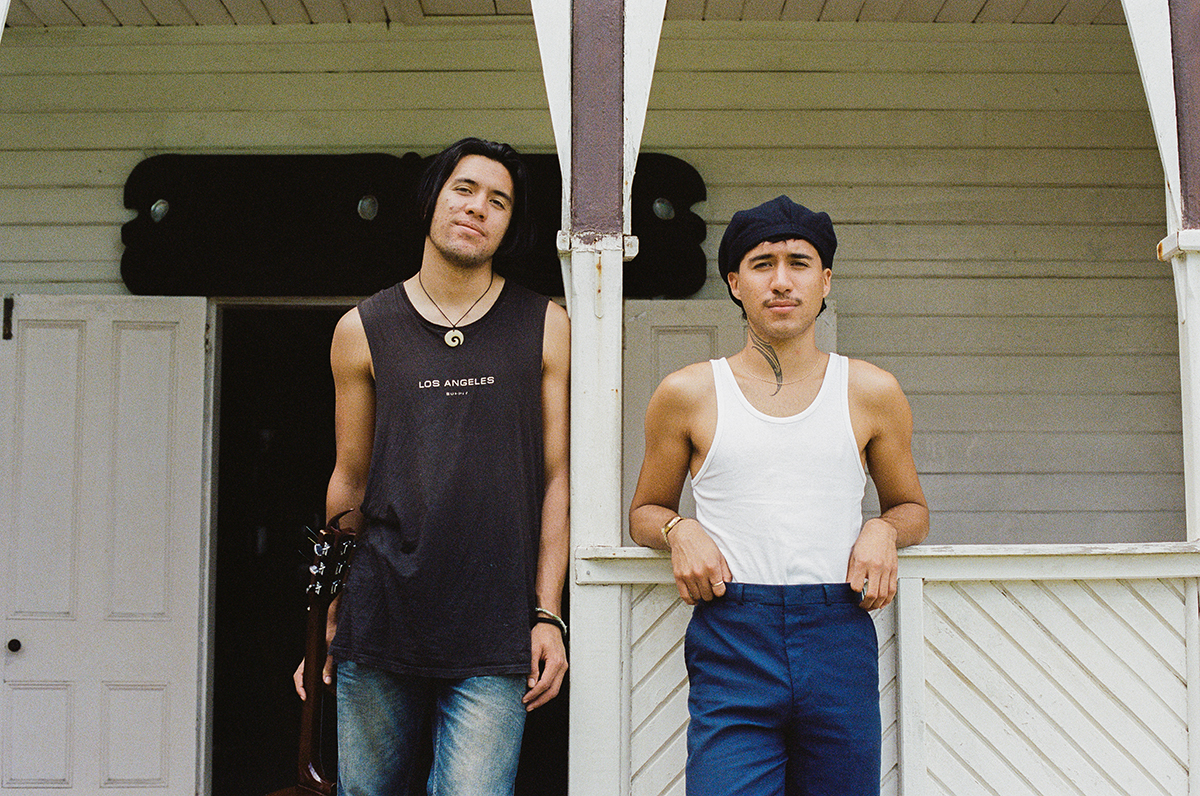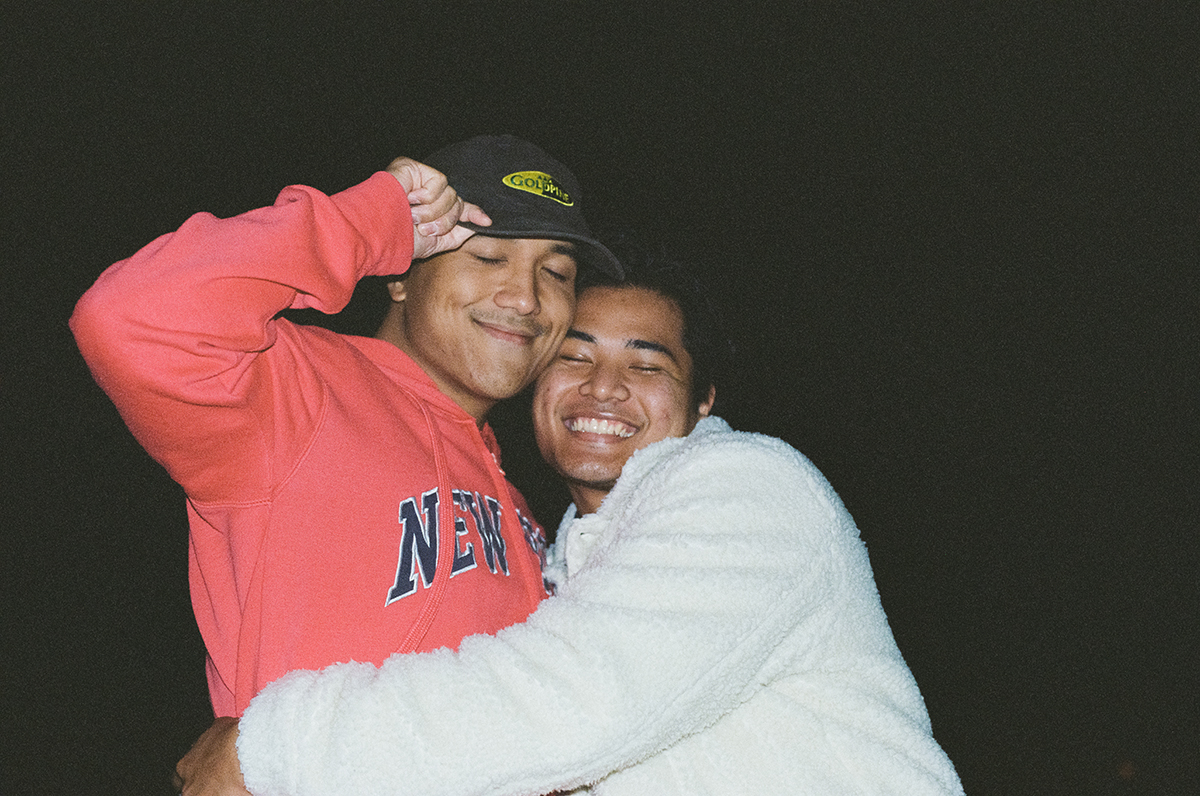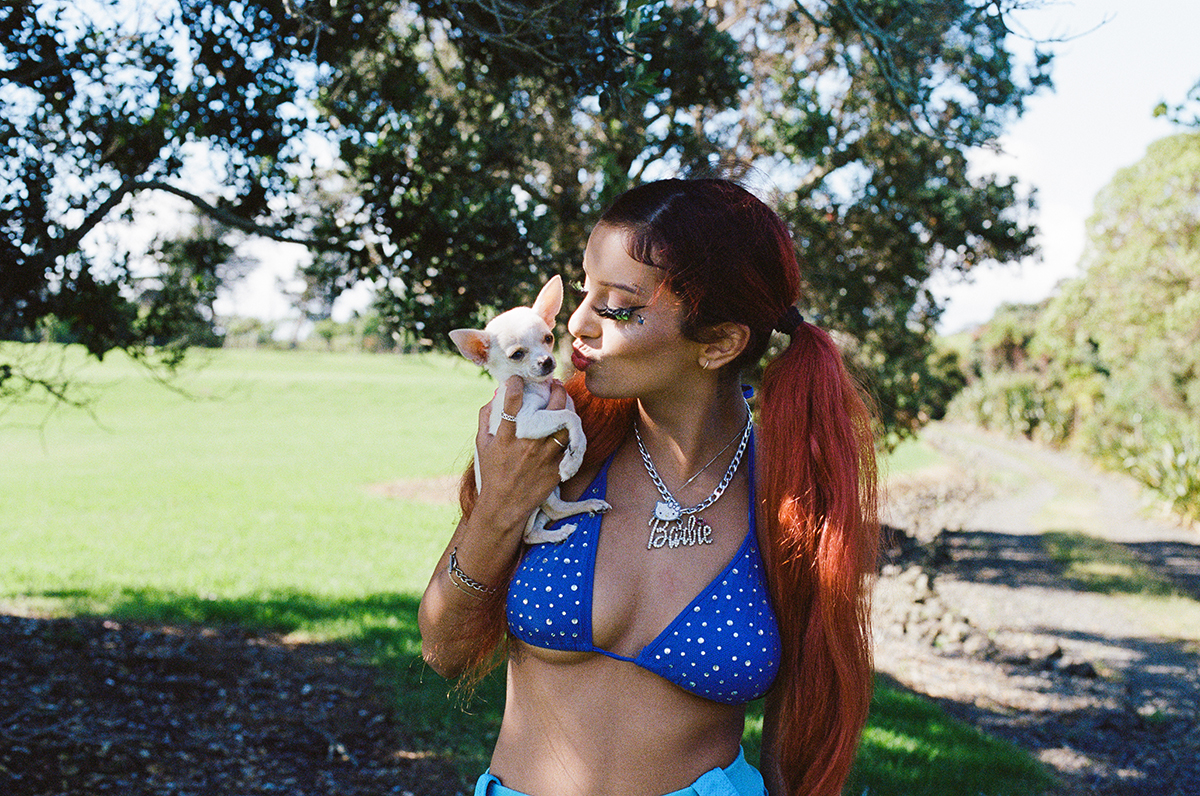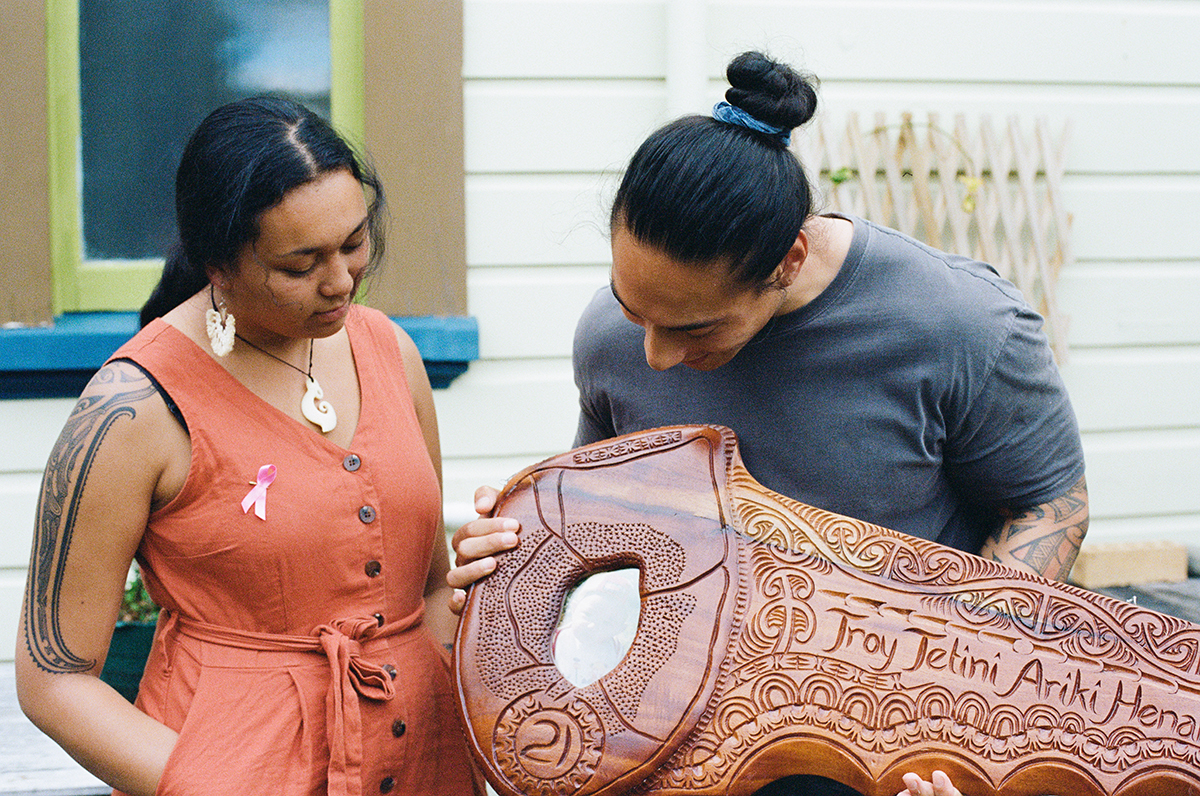By Maggie Shui
We made a documentary series about 21st birthdays and there’s somehow not a single yardie.
There is, however, the promise of a yardie.
We hear these ambitious words delivered confidently to camera by Rāwhiti’s twin brother, Ivan, in episode four.
“For our 21st party, we’re gonna be doing hella yardies.”
But, spoiler alert, Ivan’s grand vision did not come to fruition, and the series ends with no yard glass in sight.
2000s Baby is a docuseries that follows five people born in the 2000s in the lead-up to their 21st parties.
In each episode, a 2000s baby shows us what it’s like to ‘become an adult’ in their part of Aotearoa. Fittingly, the series has come out during Youth Week.

Ivan and his twin brother Rāwhiti. Photo: Maggie Shui/Re:
So, if you’re not taking a knee to scull 2.7 litres of beer in front of your dearest friends and family, what does turning 21 look like?
For starters, it looks like entering a new era with your parents.
We don’t see any yardies, but we do see every 2000s baby in the series trying to connect more deeply with their parents, to reveal facets of themselves previously hidden and to bring the people they love most more fully into their lives.
Episode two follows Tristan, a theatre graduate and proud owner of several Ariana Grande perfumes.
By the time he turns 21, he wants to have told his parents he has a boyfriend – effectively ‘coming out’ to them.
Ultimately, Tristan wants to be free to be his true self with his family.
When he’s back in the Philippines, he’s always told to speak up more.
“But I feel like I can’t,” Tristan says, “because I’m playing this whole other person.”

Tristan and his boyfriend Bo. Photo: Supplied
In episode three, Alison yearns for that easy acceptance and adult friendship that she sees her friends share with their parents.
She wants her parents to support her acting dreams and to chill out about her lip filler.
But mostly, she just wants to be able to confide in them like she would a best friend and, like Tristan, share more of her life with them.
When you add the extra layer of growing up in a different cultural context to your parents (Alison is a Chinese New Zealander and came to Tāmaki Makaurau from Dalian, China, with her whānau when she was three), making those connections can be harder, and even painful.

Alison and her parents at dinner. Photo: Liam van Eeden/Re:

Misha and her dog, Bimbo. Photo: Liam van Eeden/Re:
Another takeaway from 2000s Baby was that 21sts are still a big deal.
Even though the concept of the series we were making is literally based on 21 being an important milestone, we were still surprised by how much this was the case.
It’s a milestone that each of our 2000s babies attach dreams, rituals and life decisions to.
And it’s really upsetting when it doesn’t happen according to plan (the 21sts of 2000s Baby were filled with Covid drama, most of which were too convoluted to make it into the series).

Poe Tiare and her brother Troy. Photo: Baz Macdonald/Re:
We’re more secular than we’ve ever been, and more critical of ingrained ways of doing things. It can feel like tradition is becoming less and less relevant.
But, humans love a ritual.
They give us reason to celebrate and tell the people we love what they mean to us. They imbue key moments of our lives with meaning and sanctity.
Join Alison, Misha, Poe Tiare, Rāwhiti and Tristan on their journeys to 21.
It’s been very cool to be a part of their milestones and to now share these with you.
2000s Baby is out now on Re: and TVNZ OnDemand.
Watch 2000s Baby:
Inside Misha’s 21st, NZ’s baddest influencer | 2000s Baby
Watch the first episode of our brand new docuseries, 2000s Baby.
I want to come out to my parents before my 21st | 2000s Baby
“I’m always known to be the quiet one.”
Lip filler, rejection and immigrant parents: Alison’s 21st | 2000s Baby
“I’m Alison, I’m 21 and I’m a baddie.”